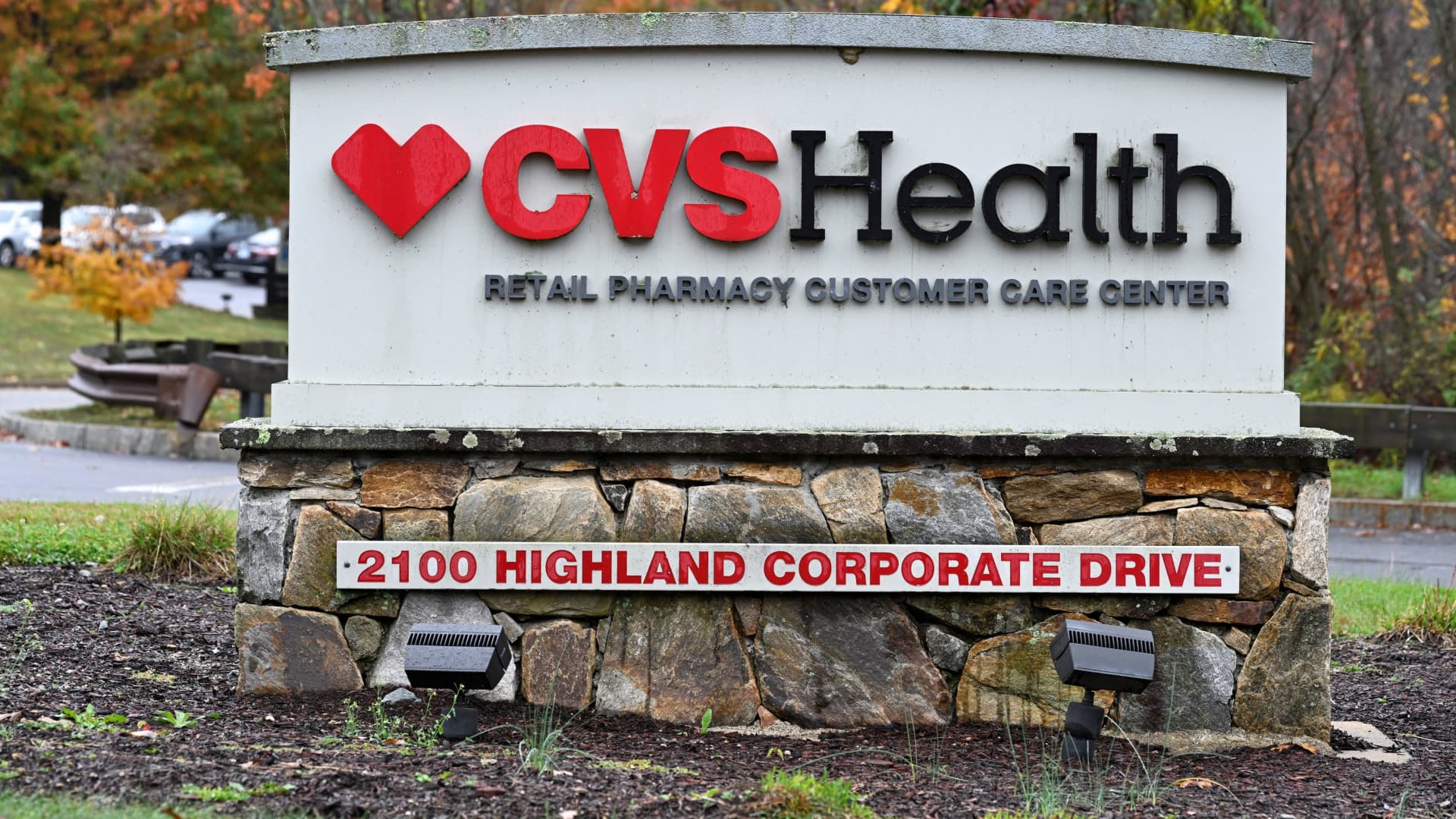
Signage is displayed on a Humana Inc. office building in Louisville, Kentucky, U.S., on Saturday, Feb. 2, 2019. Humana is scheduled to release earnings figures on February 6.
Luke Sharrett | Bloomberg | Getty Images
Shares of U.S. health insurers fell on Tuesday after the Biden administration didn’t boost payments for private Medicare plans as much as the insurance industry and investors had hoped.
Shares of CVS Health fell more than 6% on Tuesday, while UnitedHealth Group‘s stock slid roughly 6%. Shares of Elevance Health dropped 2% and Centene‘s stock fell nearly 5%.
Meanwhile, Humana‘s stock fell more than 10%. The health-care giant is far more dependent on those private Medicare plans, known as Medicare Advantage, than its rivals.
The announcement puts more pressure on insurers already grappling with high medical costs and uncertainty around claims processing after the cyberattack on UnitedHealth Group’s tech unit. It also deals a blow to Medicare Advantage businesses, which have long been driven growth and profits for the insurance industry.
The Centers for Medicare and Medicaid Services said late Monday that government payments to Medicare Advantage plans are expected to rise 3.7% year over year. That is effectively a 0.16% decline after stripping out certain assumptions baked into that rate, according to insurers and analysts.
That final rate is unchanged from an earlier proposal in January. Typically, the federal agency raises that rate from its initial proposal.
The closely watched rate determines how much insurers can charge for monthly premiums and plan benefits they offer, and ultimately, their profits.
Medicare Advantage is a privately run health insurance plan contracted by Medicare. More than half of Medicare beneficiaries are enrolled in such plans, enticed by lower monthly premiums and extra benefits not covered by traditional Medicare, according to health policy research firm KFF.







